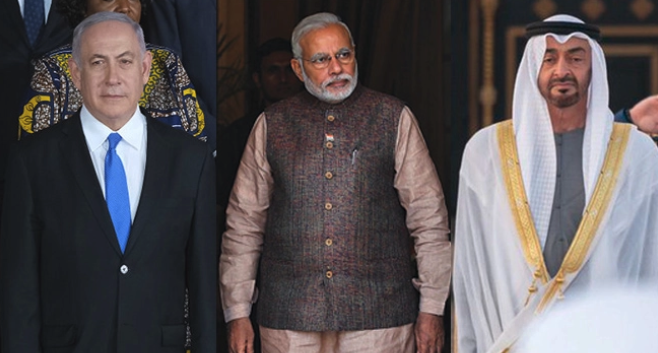Israel, India, and UAE can form a new economic alliance that connects the region
Dubai — Israel, India, and the United Arab Emirates now have the chance to modernize the southern portion of that historic trade route by connecting its ports in a caravan of commodities appropriate for the 21st century.
Anchor of The Run Down show Calev Ben-David gave a detailed analysis in the i24 News, about the new prospects of the Israel-India-UAE triangle.
The DP World logistics company in Dubai withdrew its offer to run the recently privatized port in Israel’s Mediterranean coastal city of Haifa at the end of 2021. The action really aided in the establishment of a new trade route and economic corridor connecting Southeast Asia, the Middle East, and Europe, which was a more significant development for the economies of Israel, the United Arab Emirates, and India.
The original Haifa port facility’s operating lease was purchased for $1.18 billion by the India-based Adani Group and the Israeli Gadot Group. That investment was a reflection of Israel and India’s expanding economic relations, which reached $6.3 billion in 2021.
The announcement of Adani’s deal came the same day that President Joe Biden of the United States and the leaders of Israel, the United Arab Emirates, and India met virtually in Jerusalem to launch the I2U2 Group, a new international organization made up of those four countries with the goal of promoting — “joint investments and new initiatives in water, energy, transportation, space, health, and food security”.
The Israel-India-UAE triangle contains several aspects of economic integration and growth, as the I2U2 statement noted.
For instance, all three are leaders in the global tech sector, while Israel and the United Arab Emirates are vibrant centers of innovation and R&D. Whereas, India’s population offers those relatively small countries access to a sizable pool of potential workers as well as the chance to establish back-office and manufacturing centers there.
With its headquarters in Dubai, the International Federation of Indo-Israel Chambers of Commerce was established last year with projections that trilateral trade between the three nations may reach $100 billion by 2030.
The idea of extending the India-UAE commerce line further west, all the way to the shores of the Mediterranean and the doorstep of European markets, was made possible by the Abraham Accords, which saw Israel normalize relations with a small number of Arab states.
A train connection connecting the UAE and Israel is one of the projects that the Israeli and Emirati governments are debating. Such a project might be carried out by reviving and extending old rail routes that are currently present in Saudi Arabia and Jordan. The benefits would be enormous, drastically reducing the time it currently takes for Asian cargo to travel from Asia through the Middle East to Europe by bypassing Egypt’s Suez Canal.
In light of this, India’s investment in the Haifa port is a logical step in the direction of its trade policy. China has recently used its Belt and Road Initiative to finance international infrastructure projects in order to establish a contemporary Silk Road that serves its own economic interests.



